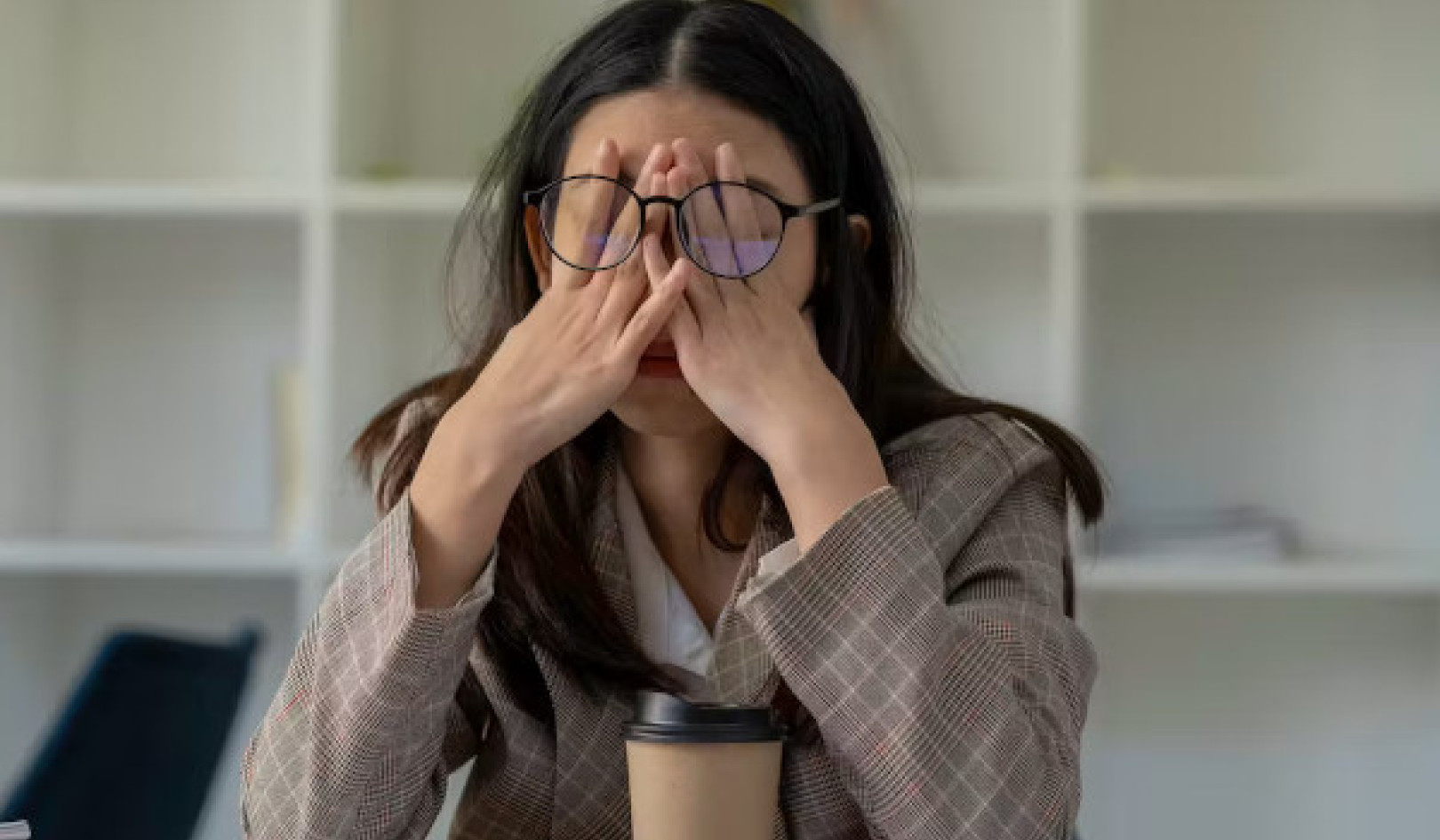
Consider the following brain teaser: A bat and a ball cost $1.10 in total. The bat costs $1.00 more than the ball. How much does the ball cost? A researcher devised the question 15 years ago as a measure of our ability to move past intuitive responses to deeper, reflective thinking — a concept Daniel Kahneman, a psychologist and Nobel Prize winner in economics, would go on to explore in his 2011 book “Thinking, Fast and Slow.” It’s been popularized to the point you may already know the answer. (Hint: It’s not 10 cents, the response that springs to mind for most people. If you ponder a bit you’re more likely to arrive at the correct answer, which I’ll get to later.)
So, what does the answer to the bat-and-ball question have to do with how you size up the threat posed by Covid-19? According to psychologist Mark Travers, intuitive thinkers — the 10 centers — may be (in his view) irrationally concerned about the virus. In an April 5 article for Forbes, he uses that concept to explain survey results showing that men are more cavalier than women about Covid-19 risks. Based on a study finding that men outscored women on the bat-and-ball question and two similar brainteasers, he posits that males are more rational. The difference could be due to genetics or the environment, he writes, but to Travers, it ultimately suggests that “men might be better equipped to size up the Covid-19 risk for what it is: a threat that, in most cases, is still exceptionally remote.”
Travers is one of a slew of psychological and behavioral experts weighing in to tell us how we should think, feel, and act in the face of Covid-19 — and some of it can be useful. It’s a stressful time, after all. Anxieties are running high, and there are, to date, very few firm answers regarding how long the pandemic might last.
But while psychologists can be essential to helping the public deal with the mental health fallout of Covid-19, not everyone thinks analyses like Travers’ are improving matters. Indeed, according to Stuart Ritchie, a psychology lecturer at King’s College London who wrote a recent analysis of the issue for the British website UnHerd, some behavioral researchers are “disgracing themselves” by using psychological research to downplay the severity of the pandemic. “We shouldn’t be trying to draw conclusions from our research, especially small-scale lab studies,” he told me, “for something as serious, unprecedented, and rare as this.”
The stakes are too high to get it wrong. In March, for example, psychologist David Halpern, head of the Behavioral Insights Team (aka “the Nudge Unit”) that consulted on the U.K.’s response to the pandemic, offered advice that now seems dangerously misguided: He spoke of achieving “herd immunity” by “cocooning” older people and otherwise deliberately allowing the virus to spread. He also recommended delaying social distancing, arguing that people would quickly tire of it and not comply.
While Halpern’s influence on official decision making is unclear, the U.K. did not act swiftly, and it is now among the hardest-hit countries in Europe.
The social sciences have spent the last decade coming to grips with the realization that some widely touted results could not be reproduced in independent experiments. For example, researchers failed to replicate results from one-third of experimental studies in the social sciences published in Science and Nature between 2010 and 2015, according to a 2018 report in Nature — and findings they could reproduce were often weaker than those reported in the original papers. But in a recent review (in preprint and not yet peer-reviewed), Tal Yarkoni, a psychology professor at the University of Texas at Austin, argues that the focus on the so-called “replication crisis” has distracted researchers from a more pressing and consequential problem: generalizability.
Yarkoni explains the concept using a thought experiment. Let’s say a scientific paper publishes a surprising finding: Pizza is disgusting! The evidence appears to be sound — researchers concluded people don’t like pizza after averaging responses from a large sample of people who rated different foods. But it turns out the study tested an unappetizing broccoli pizza. The results are reproducible, but it’s not valid to generalize them to claim that people dislike all pizza.
Of course, the narrower claim — “this particular broccoli pizza is disgusting” — is uninteresting and would be impossible to get published, said Yarkoni. “Social and behavioral scientists have a habit of wanting to make a broad, lively statement,” he said. “They make an unjustified leap from what happens in a narrow, controlled context to how people think and act in the real world.”
According to Ritchie, risk perception is one such area that is too-often vulnerable to over-generalization. Yes, he says, risk perception research is highly replicable — but it’s inappropriate to generalize it to the wholly new context of the pandemic. “All that risk perception stuff works in the context of the sorts of threats they were talking about in the lab,” he said, “but when a real genuinely massive threat comes along, it falls to pieces.”
One of the psychologists Ritchie calls out in his analysis is Northeastern University professor David DeSteno. In a February 11 op-ed for The New York Times, DeSteno started with the assumption that the seasonal flu “presents a much greater threat than does the coronavirus.” He then drew on psychological experiments, including his own, to explain why he thought people were overreacting by buying face masks, avoiding crowds, and being suspicious of Asians. “Such findings show that our emotions can bias our decisions in ways that don’t accurately reflect the dangers around us,” he wrote.
In his article, Ritchie characterized opinion pieces by DeSteno and others as “dreadful misfires” for minimizing the threat of Covid-19 not long before governments began imploring their citizens to stay home. He told me that the social scientists themselves are guilty of another replicable behavioral quirk: confirmation bias, the tendency to favor information consistent with your own point of view. You could just as easily compose a “just so” story using psychological principles to explain why people — like the men in Travers’ article — underestimated the threat.
“It’s completely speculative,” said Ritchie. “People rarely consider these biases in concert with each other. They just focus on one and say ‘this must be the explanation for all our behavior.’”
DeSteno told me that Ritchie “completely mischaracterized” his views by not accounting for what was going on at the time. When DeSteno’s op-ed was first published, the U.S. Centers for Disease Control and Prevention had reported only 13 cases of Covid-19 in the U.S., and many American officials were still ignoring or downplaying the likely impact of the virus. At the same time, by early February it was clear that Covid-19 was spreading globally — and quickly. Public health experts were warning that something very bad was coming — and, in fact, was likely already here, although we were not yet widely testing for it.
Should DeSteno have known better, based on this? It’s a fair question — but he was far from alone in issuing ostensibly research-based psychological and behavioral nostrums and prognostications early on. In a February 28 piece in Bloomberg Opinion, for example, Cass Sunstein, a behavioral economist at Harvard University, expressed concern that people would take unnecessary precautions such as canceling trips, refusing to fly, or avoiding certain countries due to the virus. (A month later he wrote that expensive precautions were justified.) And in a March 12 opinion piece for Project Syndicate, the German psychologist Gerd Gigerenzer looked to the psychological research and responses to past viral epidemics to predict that people will react to Covid-19 based on fear rather than evidence.
For my part, by the end of February, I was rethinking spring travel, talking contingencies with two of my children who were in other countries, and considering steps to protect my mother.
However, it is true that fear can compel people to act in irrational and harmful ways. Both Gigerenzer and DeSteno decried discrimination against Asians after the outbreak began in Wuhan, China, for example. The idea is not to justify panic or bad behavior, it’s to question the premise at the center of these pieces that Covid-19 posed less of a threat than everyday dangers we take in stride such as car accidents or other illnesses.
To Simine Vazire, a psychology professor at the University of California, Davis, such predictions were wildly premature. “I would be very cautious to say ‘people are overreacting and I know this because I understand the human mind,’” she said. “Even if we did, you’d still need the other half of the equation, which is 'What would be the appropriate reaction?'”
Yarkoni chalks up most of the opinions to harmless psychological storytelling. “The stories could potentially be true, but we usually have no idea, and very little basis for determining that,” he said.
But Ritchie disagrees. A bunch of articles by experts floating around in prominent places could easily influence people and governments, he said. “That’s what people hope for when they write articles.”
Instead, Vazire suggests that behavioral scientists should leave risk assessment to the virologists and epidemiologists. “I can sympathize a lot with why they believe these things,” she said of experts publishing their speculations in the press. “But I feel very little sympathy for why they went and printed it in a very high-circulation newspaper with their credentials attached to it, because I knew better than to do that.”
For his part, DeSteno stands by his New York Times piece. While fear may have been rational for health experts who understood what might be coming and needed to prepare, it wasn’t yet for everyday citizens who were not at risk at the time, he told me. “Most people don’t have the knowledge to think like a virologist or an epidemiologist. And, so, fear fills in the blanks in ways that are problematic.” In our conversation, he cited more extreme versions of the examples of irrational behavior in his op-ed — attacking Asians and causing face-mask shortages by hoarding.
And while behavioral scientists may not the best source of information on how a pandemic will unfold, their insights can be valuable for understanding our connections to each other and to the larger world. “A lot of the problems we’re facing right now — and even in resilience to disasters in general — aren’t only a function of the physical and life sciences,” said DeSteno. “A lot of what matters are decision sciences — what matters is resilience and how people behave.”
DeSteno points to research showing that after Hurricane Sandy hit New York City in 2012, areas where neighbors cooperated and trusted each other were up and running faster than other neighborhoods with similar damage. “Human decisions, human behavior is as related to surviving epidemics as is trying to figure out the medical science and everything else,” he said. “It’s all interweaved.”
He also pointed out that as with information on the medications used to treat Covid-19, advice in any scientific field will change as the situation evolves. In both his op-ed and in our conversation, he recommended heeding the latest advice of public health authorities — as did everyone I talked to for that matter. “Never anywhere did I say that Covid-19 wouldn’t become a big concern for us,” he told me.
For what it’s worth, I correctly answered the bat-and-ball question. (The ball costs 5 cents.) Research shows that people like me, with a background in math, are more apt to get the question right, regardless of gender. Or maybe as a journalist, I’m just skeptical of first impressions and the easy answer.
And while I’m not panicked, I’m also skeptical of advice telling me to calm down. With all due respect to Travers — who declined to comment for this story — a degree of fear seems justified. “My dad is 79 and I spend loads of time worrying about him,” said Ritchie. The worries multiply when you think about the risk to yourself, friends, family, and others in your community he said. “I think it becomes quite rational to be quite scared.”
My city of Austin, Texas is not a hotspot at the moment, but nonetheless I have friends recovering from severe cases of Covid-19. My nephew is a respiratory therapist assigned to an intensive care unit for Covid-19 patients. My stepmother is hospitalized with a broken hip — confused and alone because visitors could carry the virus. I’m not sure when I’ll get to give her — or my own mother, who’s also isolated — a hug again. What does the cost of a ball have to do with how I feel about that? Not a damn thing.
About The Author
Teresa Carr is a Texas-based investigative journalist and the author of Undark's Matters of Fact column.
This article was originally published on Undark. Read the original article.

Related Books:
Atomic Habits: An Easy & Proven Way to Build Good Habits & Break Bad Ones
by James Clear
Atomic Habits provides practical advice for developing good habits and breaking bad ones, based on scientific research on behavior change.
Click for more info or to order
The Four Tendencies: The Indispensable Personality Profiles That Reveal How to Make Your Life Better (and Other People's Lives Better, Too)
by Gretchen Rubin
The Four Tendencies identifies four personality types and explains how understanding your own tendencies can help you improve your relationships, work habits, and overall happiness.
Click for more info or to order
Think Again: The Power of Knowing What You Don't Know
by Adam Grant
Think Again explores how people can change their minds and attitudes, and offers strategies for improving critical thinking and decision making.
Click for more info or to order
The Body Keeps the Score: Brain, Mind, and Body in the Healing of Trauma
by Bessel van der Kolk
The Body Keeps the Score discusses the connection between trauma and physical health, and offers insights into how trauma can be treated and healed.
Click for more info or to order
The Psychology of Money: Timeless lessons on wealth, greed, and happiness
by Morgan Housel
The Psychology of Money examines the ways in which our attitudes and behaviors around money can shape our financial success and overall well-being.
























